If you’re looking for fresh numbers you can paste into a slide and defend in your budget/RFP meetings, this is the place for you.
We pulled the most recent, B2B-specific stats and organized them around the most important things in B2B SEO.
Below are the stats worth citing in 2025.
Organic search is still a top B2B discovery and pipeline driver.
- The average conversion rate for organic search is 5.0%. (Ruler Analytics)
- 27% of marketers who can identify a top channel cite organic search as #1. (Binary Demand)
- B2B SaaS SEO shows ~702% average ROI with ~7‑month break‑even across a 3‑year window. (First Page Sage)
- Organic traffic typically produces lower CPL ($147) than paid search ($280) in SaaS. (First Page Sage)
- Google sends 345x more traffic to websites than ChatGPT, Gemini, and Perplexity combined. (Ahrefs)
- 96.98% of clicks happen in the top 10 search results. (Ahrefs)
- 45.7% of Google searches are branded. (Ahrefs)
- AI Overviews reduce clicks to websites by 34.5%. (Ahrefs)
- 26% of brands have zero mentions in AI Overviews. (Ahrefs)
- 28% of ChatGPT’s most-cited pages have zero organic visibility in Google search. (Ahrefs)
- AI search platforms prefer to cite content that is 25.7% fresher than content cited in traditional organic results. (Ahrefs)
- The top 50 brands appearing in AI Overviews account for 28.9% of all citations. (Ahrefs)
- 76% of AI Overview citations are pulled from the pages, ranking in Google’s top 10 organic results. (Ahrefs)
- ChatGPT has driven AI traffic growth to websites almost single-handedly, growing 85% since January. (Ahrefs)
- ChatGPT is the top AI referrer, accounting for over 80% of AI traffic to websites. (Ahrefs)
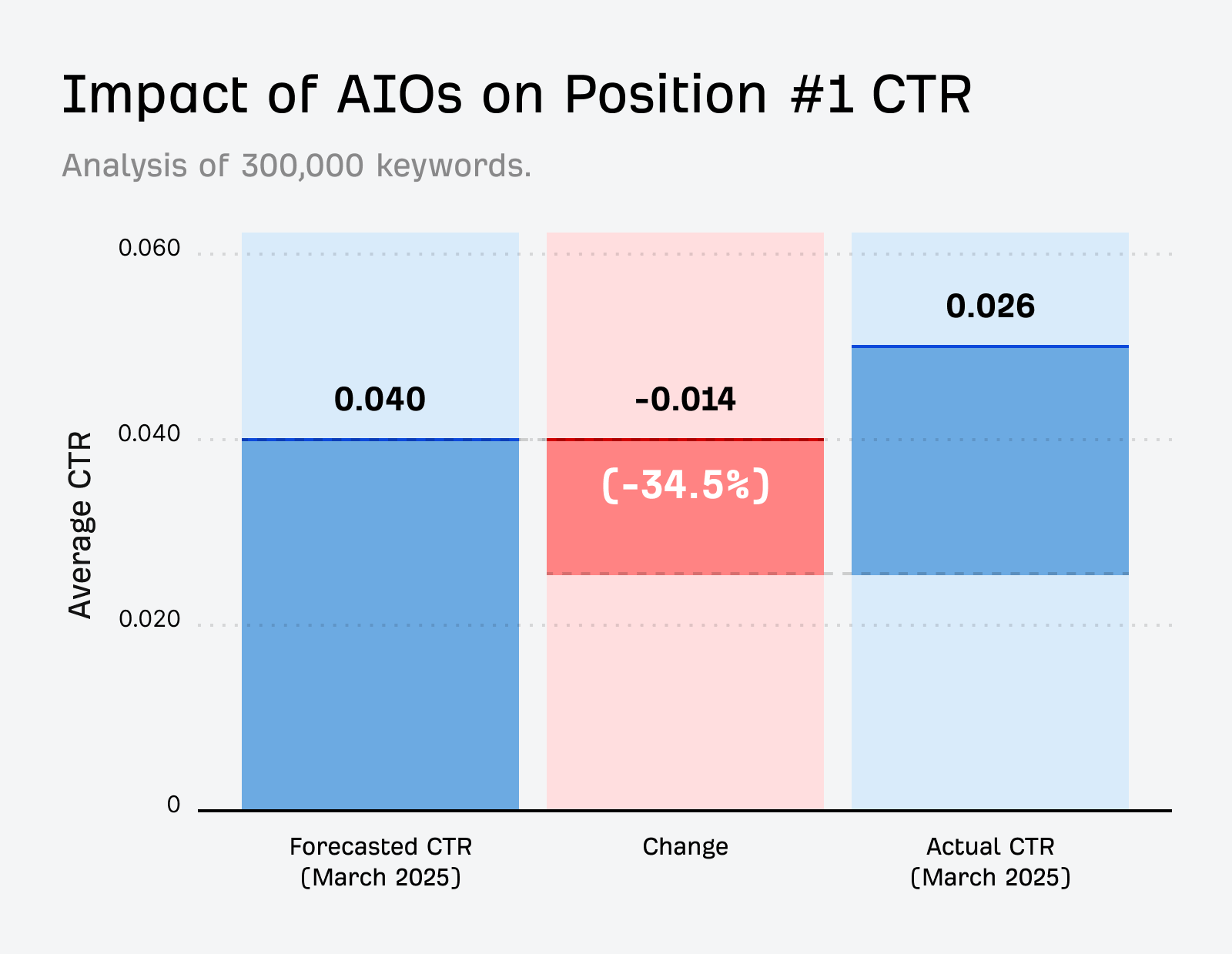
AI may have changed the game for SEO, but great technical health still matters. If you can’t be crawled or indexed, you can’t appear in Google or other LLMs.
- 55.6% of SEO professionals say technical SEO is often undervalued. (TripleDart)
- 40% of B2B companies say they lack the internal expertise needed to manage technical SEO. (Statista)
- 78% of websites use some form of schema/markup. (W3 Tech)
- 80% of B2B buyers are using mobile at work, and more than 60% report that mobile played a significant role in a recent purchase. (BCG)
- Around 40% of websites now pass all Core Web Vitals thresholds. (Addy Osmani)
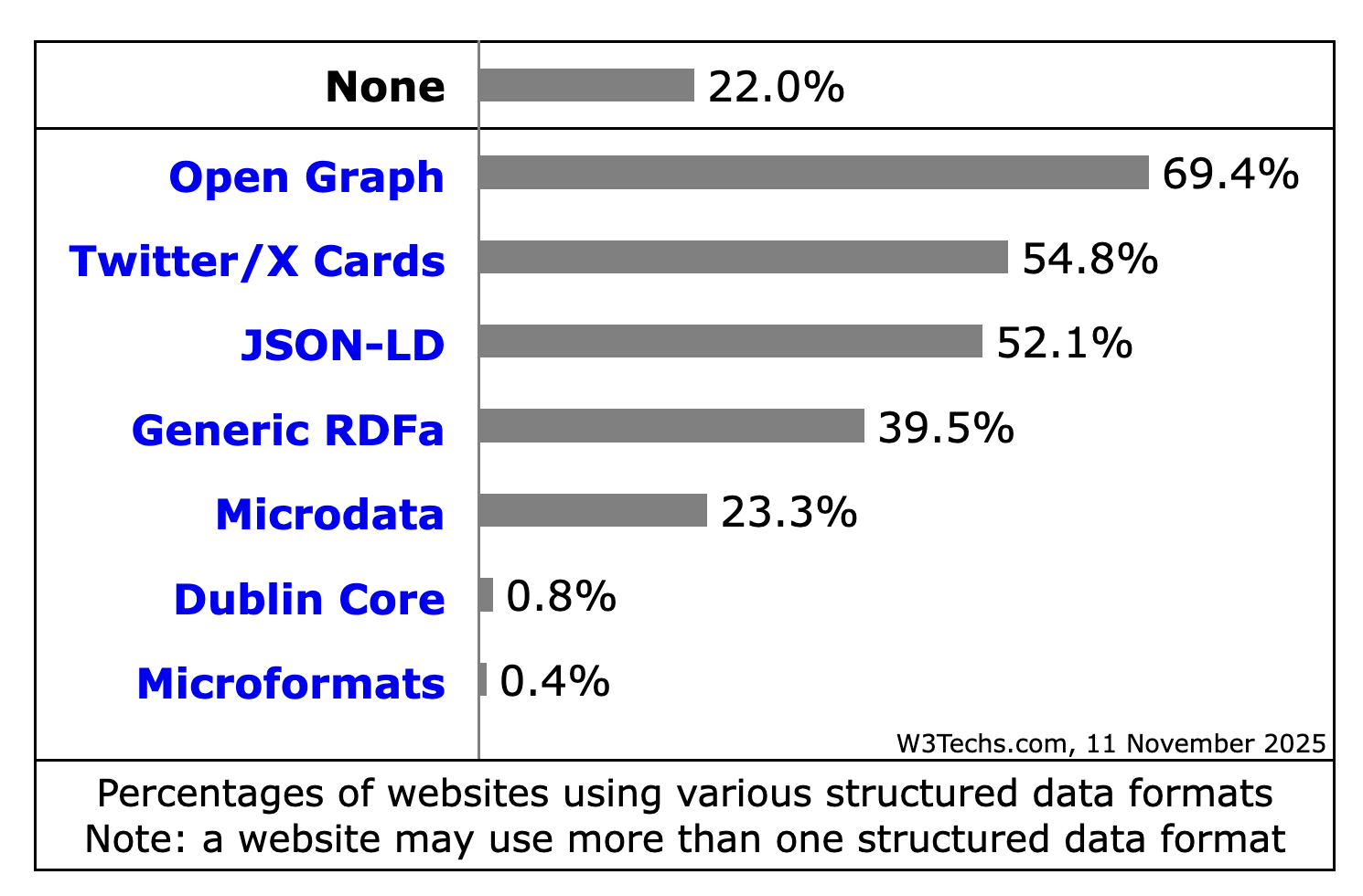
More marketers are using AI to create content. Yet, the one thing that matters in B2B is still high-quality thought leadership content.
- 46% of B2B marketers think their content marketing budget will increase in 2025. (Content Marketing Institute)
- 40% of B2B marketers say their biggest challenge in content marketing is conversion. 39% say it’s resource constraints, and 33% say it’s measuring content effectiveness. (Content Marketing Institute)
- 87% of marketers use AI to help create content. (Ahrefs)
- AI content is 4.7x cheaper than human-written content. (Ahrefs)
- Companies spend an average of $188 per month on AI tools for content creation and marketing. (Ahrefs)
- 51% of companies plan to increase their spend on AI-generated content. (Ahrefs)
- Marketers using AI publish 42% more content: the median monthly publishing frequency using AI was 17 articles, compared to 12 for those not using AI. (Ahrefs)
- Blog posts are the most common type of AI-generated content (87%). Brainstorming (76%), outlining (73%), and content updates (67%) are the top AI-assisted SEO tasks. (Ahrefs)
- 48.6% of SEOs believe digital PR is the most effective tactic for 2025. (Buzzstream)
- The average cost of a high-quality or top-tier guest post is $692 – $957. (Buzzstream)
- 95% of B2B decision makers say that strong thought leadership makes them more receptive to sales and marketing outreach. (Edelman-LinkedIn)
- 51% of B2B decision makers say that high-quality thought leadership helps them convince C-level executives to support their choice of vendor. (Edelman-LinkedIn)
- 79% of B2B decision makers say that during the RFP process, they’re more likely to advocate for proposals from companies that consistently produce high-quality thought leadership. (Edelman-LinkedIn)
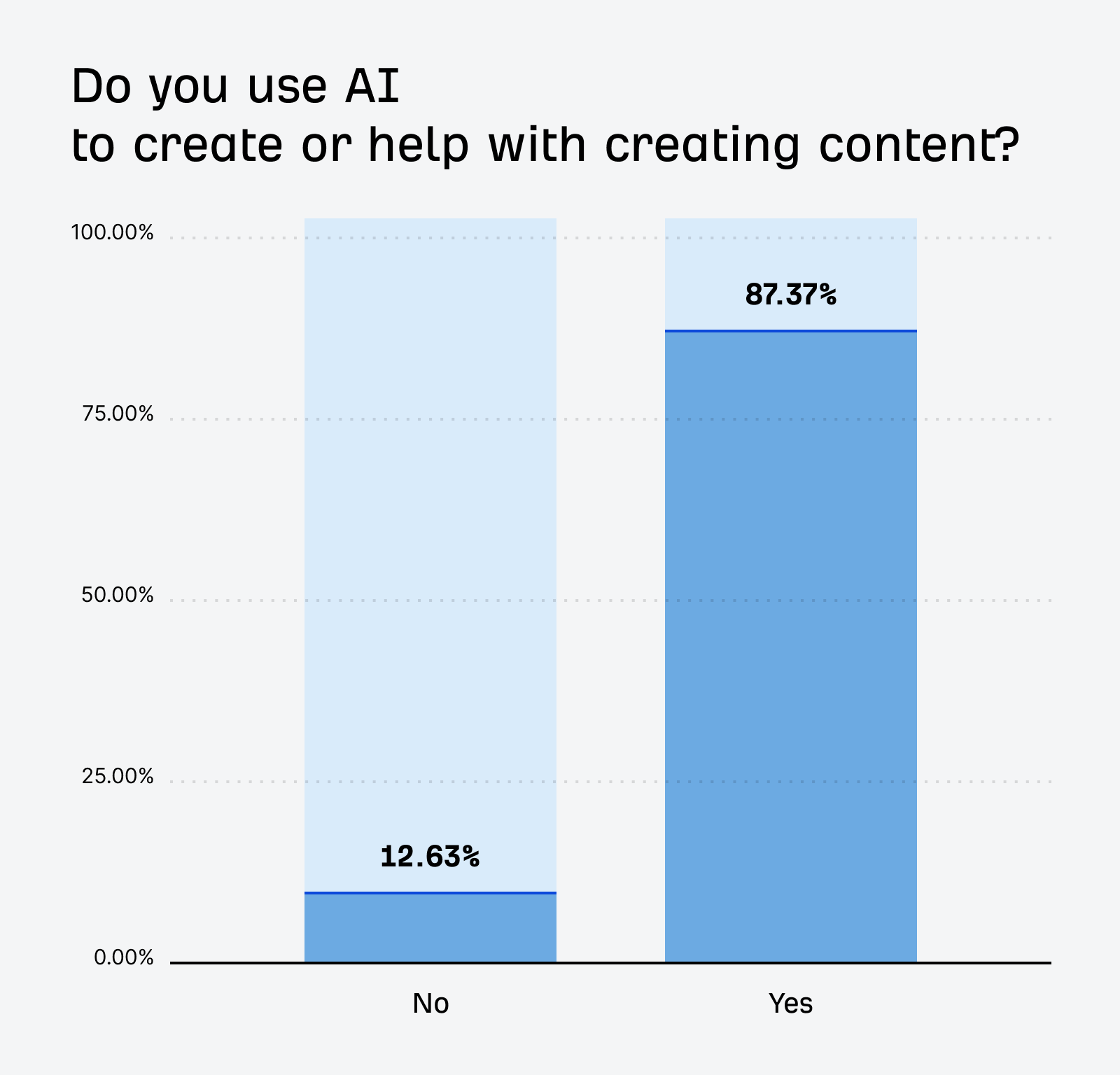
Buying cycles are longer, yet buyers are making shorter lists and buying from their preferred vendors.
- 61% of B2B buyers prefer a rep-free buying experience; 73% actively avoid suppliers that send irrelevant outreach. (Gartner)
- Shortlists are shrinking: 45% of buyers had 4 to 7 products on their shortlists in 2023, but 49% had 1 to 3 products in 2024. (G2)
- 34% of B2B buyers say that research is the longest stage in their buying process, but AI power-users are less likely to focus on it. (G2)
- 31% of B2B buyers consult review sites more often than other sources. (G2)
- B2B customers use an average of ten interaction channels in their buying journey (up from five in 2016). (McKinsey)
- Only 5% of B2B customers are “in-market” at any time. (LinkedIn)
- 81% of B2B buyers report having a preferred vendor on first outreach. (Demand Gen Report)
- The average buying group has grown to include at least 10-11 stakeholders. (6Sense)
- The typical B2B buying cycle now spans 11.5 months. (6Sense)
- 71% of buyers went with their first choice product after creating their short list. (TrustRadius)
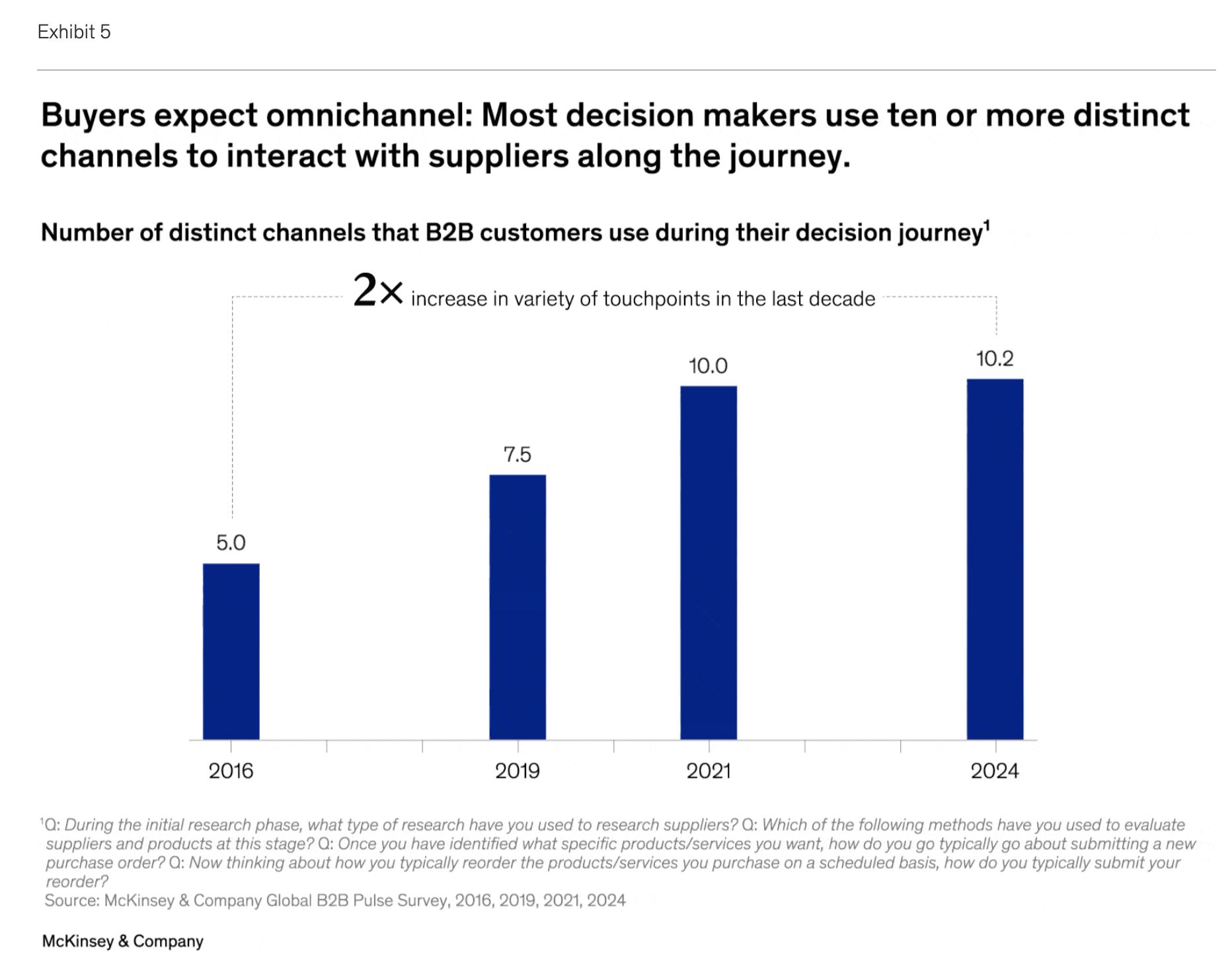
Final thoughts
These B2B stats point to the same direction: Despite the growth of AI, organic search still remains a primary discovery and conversion channel. So, while you’re focused on gaining more AI visibility, don’t forget the basics.
SEO is still important.
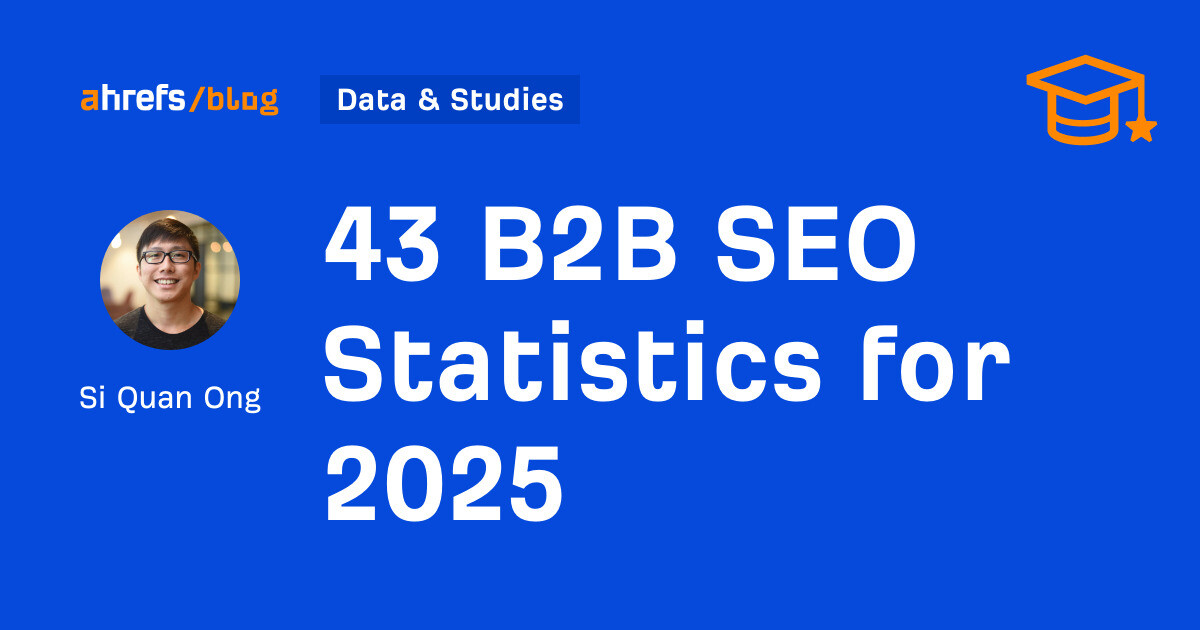
Leave a Reply